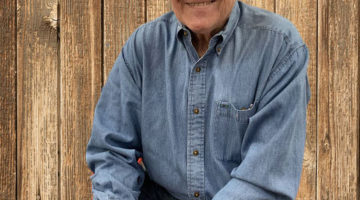Click on the map below – The Shul World Weekly brings you incredibly local shul news from across the globe!
This week : Atlantic City, Curacao, and Ukraine!
Atlantic City, New Jersey, USA
Although known for casinos on the boardwalk, Atlantic City is also home to the Chai Center. After 30 years operating out of a storefront on Ventnor Avenue, the shul is just about ready to move into a massive new location – a renovated former Episcopalian church – on Atlantic Avenue (and as we all know from Monopoly, that’s a step up). Like many shuls in resort towns, the shul is quiet for most of the year and very busy for three months (150 attendees on the average summer Shabbos). Taking on the bigger space was a gamble Rabbi Avrohom Rapoport, who took over the position nine years ago from his father, was willing to roll the dice on. Rabbi Rapoport has been hosting the shul from his home as they await the opening of the Atlantic location. The shul does a tremendous amount of outreach and caters to all backgrounds. Every Friday there is a challah baking workshop and on Wednesdays they do Whiskey, Wings, and Wisdom. Coming up is their major summer event: Jewish Summer Fest on the beach, which includes music, food, crafts, and a blowing of the shofar. Last Shabbos, the rabbi spoke about one non-kosher bird listed in the Torah which the Talmud describes as being able to stand in Babylon (modern Iraq) and see a carcass in Israel. The lesson suggested was that life is about perspective. To look at Israel so closely from afar and only see the negative is not the “kosher” way to be.
Curacao, Dutch Caribbean
The United Netherlands-Portuguese Congregation Mikvè Israel-Emanuel (or The Snoa, coming from the Portuguese word for synagogue ‘esnoga’) is the oldest synagogue in continuous use in the Western Hemisphere. The congregation was founded in 1651 and the synagogue building they now use was built in 1732 as a replica of the Sephardic synagogue of Amsterdam. At one time there were more Jews on the island of Curaçao than in the entire North American continent and it was this congregation that donated to help the oldest synagogue in the US, the Touro synagogue, get started. Nowadays, very few Jews attend regularly (although there is another shul (Ashkenazic) on the island). About 10-15 people show up and pray on the average Shabbat. Last Friday, however, by kabbalat Shabbat, there were 100 people for their big summer “family service” as well as a celebration of Hazzan Avery Tracht’s 10 year anniversary as spiritual leader. Hazzan Tracht joked that Snoa may be the last liberal Sephardic shul in the world! Some of the prayers they recite are in Portuguese and when Elul was announced two weeks ago, it was done so in 6 languages. Hazzan Tracht recently spoke from the bimah about the uptick in Jewish terrorism. In other news, the community will be celebrating the bar mitzvah of one of their own very soon….in Philadelphia, and will be traveling together as a group. With Rosh Hashanah coming up, they will begin to wish each other ‘Scritu y Sellado’ which is Papiamento/Ladino for ‘May you be inscribed and sealed.”
Kharkiv, Ukraine
Situated in the Ukraine’s second biggest city and just 40 kilometers from the Russian border, Bais Menachem manages to remain steady, despite the surrounding turmoil. Rabbi Moshe Moskovitz reported that he is careful when speaking to new members or visitors since the community seems to be divided evenly on the Ukrainian/Russian issue. The shul building went up in 1913, but was closed by the communist regime in the 1920’s and spent half a century as a sports complex. Only in 1990 did the then Soviet Union under Mikhail Gorbachev return the property for shul use. That was about when Rabbi Moskovitz arrived to not only help rebuild a physical structure, but also resurrect the Jewish communal spirit in Kharkiv. The shul is open every day all day and serves as the religious center for Kharkiv’s many young Jews. Although the main focus of the shul is to draw in and inspire the unaffiliated, there is an existing orthodox community which allows for daily services (nusach Ari) and hosts a few hundred every Shabbos. With Rosh Hashanah coming up, the rabbi has stressed that all people, at the very least, come to shul to hear the blowing of the shofar. This past Shabbos, Rabbi Moskovitz spoke about Elul being a time when Jews take stock of their deeds, the metaphorical King comes out into the field amongst the peasants and allows them to follow Him back into the palace, and he reminded the congregation that Elul can stand for Ani L’Dodi v’Dodi Li – I am my Beloved’s and my Beloved is mine – a euphemism for our relationship with God from King Solomon’s Song of Songs.










